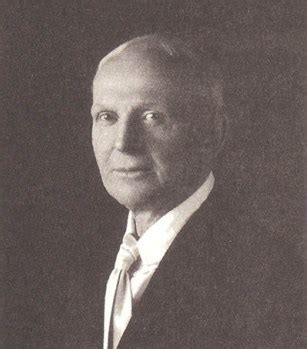A Quote by Johann Wolfgang von Goethe
Man knows himself only insofar as he knows the world, becoming aware of it if only within himself, and of himself self only within it. Each new subject, well observed, opens up within us a new organ of thought.
Related Quotes
An artist is he who has his center within himself. He who lacks this must choose a particular leader and mediator outside of himself, not forever, however, but only at first. For man cannot exist without a living center, and if he does not have it within himself, he may seek it only in a human being. Only a human being and his center can stimulate and awaken that of another.
Man... knows only when he is satisfied and when he suffers, and only his sufferings and his satisfactions instruct him concerning himself, teach him what to seek and what to avoid. For the rest, man is a confused creature; he knows not whence he comes or whither he goes, he knows little of the world, and above all, he knows little of himself.
Solitude is the profoundest fact of the human condition. Man is the only being who knows he is alone, and the only one who seeks out another. His nature - if that word can be used in reference to man, who has ‘invented’ himself by saying ‘no’ to nature - consists in his longing to realize himself in another. Man is nostalgia and a search for communion. Therefore, when he is aware of himself he is aware of his lack of another, that is, of his solitude.
Pain and pleasure, like light and darkness, succeed each other; and he that knows how to accommodate himself to their periodical returns, and can wisely extract the good from the evil, knows only how to live: this is true contentment, at least all that is to be had of it in this world; and for this every man must be indebted not to his fortune, but to himself.
There is no deception on the part of the woman, where a man bewilders himself: if he deludes his own wits, I can certainly acquit the women. Whatever man allows his mind to dwell upon the imprint his imagination has foolishly taken of women, is fanning the flames within himself -- and, since the woman knows nothing about it, she is not to blame. For if a man incites himself to drown, and will not restrain himself, it is not the water's fault.
Each man had only one genuine vocation - to find the way to himself....His task was to discover his own destiny - not an arbitrary one - and to live it out wholly and resolutely within himself. Everything else was only a would-be existence, an attempt at evasion, a flight back to the ideals of the masses, conformity and fear of one's own inwardness.
The source of innovation is freedom. All we have - new knowledge, invention - comes from freedom. Discoveries and new knowledge come from freedom. When somebody is responsible only to himself, [has] only himself to satisfy, then you'll have invention, new thought, now product, new design, new ideas.
The one and only formative power given to man Is thought. By his thinking he not only makes character, but body and affairs, for as he thinketh within himself, so is he. Prejudice is a mist, which in our journey through the world often dims the brightest and obscures the best of all the good and glorious objects that meet us on our way.
How does one chip off the marble that doesn't belong? ... That comes about through five things: humility, reverence, inspiration, deep purpose, and joy. No great man has ever wise-cracked his way to greatness. Until one learns to lose one's self he cannot find himself. No one can multiply himself by himself. He must first divide himself and give himself to the service of all, thus placing himself within all others through acts of thoughtfulness and service.
There is within me a friend who consoles me every time that troubles overwhelm me and misfortunes afflict me. The man who does not feel friendship towards himself is a public enemy, and he who finds no confidant within himself will die of despair. For life streams out of man's inner self and in no way from what surrounds him.
Man is always something more than what he knows of himself. He is not what he is simply once and for all, but is a process; he is not merely an extant life, but is, within that life, endowed with possibilities through the freedom he possesses to make of himself what he will by the activities on which he decides.
His constant fight is with the Nafs (self-interest), the root of all disharmony and the only enemy of man. By crushing this enemy man gains mastery over himself; this wins for him mastery over the whole universe, because the wall standing between the self and the Almighty has been broken down. Gentleness, mildness, respect, humility, modesty, self-denial, conscientiousness, tolerance and forgiveness are considered by the Sufi as the attributes which produce harmony within one's own soul as well as within that of another.
A human being is not one thing among others; things determine each other, but man is ultimately self-determining. What he becomes - within the limits of endowment and environment- he has made out of himself. In the concentration camps, for example, in this living laboratory and on this testing ground, we watched and witnessed some of our comrades behave like swine while others behaved like saints. Man has both potentialities within himself; which one is actualized depends on decisions but not on conditions.




































